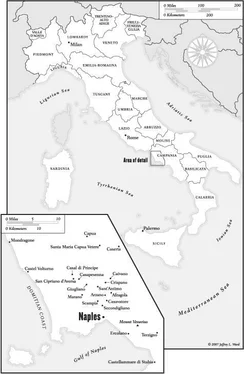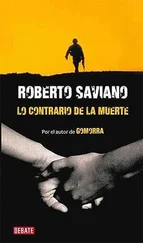Roberto Saviano - Gomorrah - A Personal Journey into the Violent International Empire of Naples’ Organized Crime System
Здесь есть возможность читать онлайн «Roberto Saviano - Gomorrah - A Personal Journey into the Violent International Empire of Naples’ Organized Crime System» весь текст электронной книги совершенно бесплатно (целиком полную версию без сокращений). В некоторых случаях можно слушать аудио, скачать через торрент в формате fb2 и присутствует краткое содержание. Жанр: Старинная литература, на английском языке. Описание произведения, (предисловие) а так же отзывы посетителей доступны на портале библиотеки ЛибКат.
- Название:Gomorrah: A Personal Journey into the Violent International Empire of Naples’ Organized Crime System
- Автор:
- Жанр:
- Год:неизвестен
- ISBN:нет данных
- Рейтинг книги:5 / 5. Голосов: 1
-
Избранное:Добавить в избранное
- Отзывы:
-
Ваша оценка:
- 100
- 1
- 2
- 3
- 4
- 5
Gomorrah: A Personal Journey into the Violent International Empire of Naples’ Organized Crime System: краткое содержание, описание и аннотация
Предлагаем к чтению аннотацию, описание, краткое содержание или предисловие (зависит от того, что написал сам автор книги «Gomorrah: A Personal Journey into the Violent International Empire of Naples’ Organized Crime System»). Если вы не нашли необходимую информацию о книге — напишите в комментариях, мы постараемся отыскать её.
Gomorrah: A Personal Journey into the Violent International Empire of Naples’ Organized Crime System — читать онлайн бесплатно полную книгу (весь текст) целиком
Ниже представлен текст книги, разбитый по страницам. Система сохранения места последней прочитанной страницы, позволяет с удобством читать онлайн бесплатно книгу «Gomorrah: A Personal Journey into the Violent International Empire of Naples’ Organized Crime System», без необходимости каждый раз заново искать на чём Вы остановились. Поставьте закладку, и сможете в любой момент перейти на страницу, на которой закончили чтение.
Интервал:
Закладка:
The southern Italian’s wariness and distrust of the establishment because of its age-old inability to solve the serious problems that afflict the south, particularly employment, housing, health, and education;
The suspicion, not always baseless, of complicity with the Camorra on the part of politicians who, in exchange for electoral support, or to achieve common goals, guarantee cover and grant favors;
The widespread feeling of personal insecurity and constant risk resulting from insufficient legal protection of persons and possessions, from the slowness of the legal system, the ambiguity of the legislative tools … that not infrequently leads to an appeal for defense organized by the clans or the acceptance of Camorra protection;
The lack of clarity on the job market, so that finding a job is more a matter of Camorra-client operations than the pursuit of a right based on employment legislation;
The absence or inadequacy, even in pastoral activities, of a true social education, as if it were possible to shape a mature Christian without also shaping the man and the mature citizen.
In the late 1980s Don Peppino organized an anti-Camorra march following a mass assault on the carabinieri barracks in San Cipriano d’Aversa. Some carabinieri had dared to break up a fight between two local boys during an evening of entertainment in honor of the patron saint, so dozens of people decided to destroy their headquarters and beat up the officers. The San Cipriano barracks are tucked in a narrow alley, and the marshals and lance corporals had no means of escape. The bosses themselves had to send the neighborhood capos to put down the revolt and save the carabinieri. Antonio Bardellino was still in control at that time, and his brother Ernesto was the mayor.
We, the priests of the churches of Campania, do not intend, however, to limit ourselves to denouncing these situations; rather, within the scope of our abilities and possibilities, we intend to help overcome them even by revising and integrating the matter and method of pastoral activity.
Don Peppino started to question the bosses’ religious beliefs, to deny explicitly that there could be any harmony between the Christian creed and the business, political, and military power of the clans. In the land of the Camorra, the Christian message is not considered contradictory to Camorra activities: if the clan acts for the good of all its affiliates, the organization is seen as respecting and pursuing the Christian good. The killing of enemies and traitors is seen as a necessary, legitimate transgression; by the bosses’ reasoning, the command “Thou shalt not kill” inscribed on Moses’ tablets may be suspended if the homicide occurs for a higher motive, namely the safeguarding of the clan, the interests of its managers, or the good of the group, and therefore of everyone. Killing is a sin that Christ will understand and forgive in the name of necessity.
At San Cipriano d’Aversa, Antonio Bardellino made use of an old ritual that eventually disappeared: pungitura, which the Cosa Nostra also used in initiating new affiliates. The aspirant’s right index finger would be pricked with a pin and the blood made to drip onto an image of the Madonna of Pompeii. This was then burned over a candle and passed, hand to hand, to all the clan managers who stood around a table. If all the affiliates kissed the Madonna, the candidate became officially part of the clan. Religion is a constant point of reference for the Camorra, not merely a propitiatory gesture or cultural relic but a spiritual force that determines the most intimate decisions. Camorra families, especially the most charismatic bosses, often consider their own actions as a Calvary, their own conscience bearing the pain and weight of sin for the well-being of the group and the men they rule.
At Pignataro Maggiore the Lubrano clan paid to have a fresco of the Madonna restored. It is called the Madonna of the Camorra since the town’s most important Cosa Nostra fugitives from Sicily turned to her for protection. It’s not really that difficult to imagine Totò Riina, Michele Greco, Luciano Liggio, and Bernardo Provenzano kneeling in front of the fresco and praying that their actions be enlightened and their getaways protected.
When Vincenzo Lubrano was acquitted, he organized a pilgrimage—several busloads of the faithful—to San Giovanni Rotondo to give thanks to Padre Pio, who, he believed, was responsible for his absolution. Life-size statues of Padre Pio and terra-cotta or bronze copies of the open-armed Christ on Pão de Açúcar in Rio de Janeiro can be found in the villa of many a Camorra boss. In the drug-warehouse laboratories in Scampia, bricks of hashish are often cut thirty-three at a time—like Christ’s age. Then they halt work for thirty-three minutes, make the sign of the cross, and start up again. A way to propitiate Christ and receive earnings and tranquillity. The same happens with packets of cocaine; often before they are distributed to the pushers, the neighborhood capo blesses them with holy water from Lourdes in the hopes that they don’t kill anyone, especially because he would have to answer personally for the poor quality of the stuff.
Camorra power does not involve only the flesh, nor does it merely own everyone’s life. It also lays claim to souls. Don Peppino wanted to bring some clarity to words, meanings, and values.
The Camorra gives the name family to a clan organized for criminal purposes, in which absolute loyalty is the law, any expression of autonomy is denied, and not only defection but the conversion to honesty is considered a betrayal worthy of death; the Camorra uses every means to extend and consolidate this type of family, even exploitation of the sacraments. For the Christian, shaped to the school of the Word of God, family means only a group of people united by shared love, in which love means disinterested and attentive service, in which service exalts him who offers it and him who receives it. The Camorra claims to have its own religiosity, and at times it manages to deceive not only the faithful, but also the inexperienced or ingenuous shepherd of souls.
The document even attempted to broach the subject of the sacraments. To keep at bay any possible confusion of Communion, marriage, and the role of the godfather, with Camorra strategies. To distance clan pacts and alliances from religious symbols. At the mere thought of saying such things the local priests would have run to the bathroom in fright with their hands on their stomachs. Who would chase away from the altar a boss eager to baptize an affiliate’s child? Who would refuse to celebrate a marriage just because it was the result of an alliance between Camorra families? Don Peppino was clear:
In the sacraments that call for a godfather, do not allow that role to be held by anyone not known for Christian maturity and honesty in his public and private life. Do not admit to the sacraments anyone who attempts to assert undue pressure in the absence of the necessary sacramental initiation.
Don Peppino’s challenge to the power of the Camorra came in the moment when Francesco Sandokan Schiavone was hiding in a bunker under his villa in town, the Casalesi families were warring among themselves, and cement and waste were becoming the new frontiers of their empires. Don Peppino did not want to play the consoling priest who accompanies murdered boy soldiers to their grave and whispers, “You must be strong,” to mothers in black. In an interview he stated, “We must divide the people so as to throw them into crisis.” He also took a stand politically, explaining that his priority was to fight political power as an expression of criminal business power: he would give his support to concrete projects, to renovation, and he would not remain impartial. “Political parties have become confused with their representatives; often the candidates favored by the Camorra have neither policy nor party, but merely a role as player or a post to fill.” The goal was not to defeat the Camorra. As Don Peppino himself would say, “Winners and losers are all in the same boat.” Instead it was to understand, transform, bear witness, speak out, take an electrocardiogram of the heart of economic power to understand how to wrest the organ’s muscles from the clan’s control.
Читать дальшеИнтервал:
Закладка:
Похожие книги на «Gomorrah: A Personal Journey into the Violent International Empire of Naples’ Organized Crime System»
Представляем Вашему вниманию похожие книги на «Gomorrah: A Personal Journey into the Violent International Empire of Naples’ Organized Crime System» списком для выбора. Мы отобрали схожую по названию и смыслу литературу в надежде предоставить читателям больше вариантов отыскать новые, интересные, ещё непрочитанные произведения.
Обсуждение, отзывы о книге «Gomorrah: A Personal Journey into the Violent International Empire of Naples’ Organized Crime System» и просто собственные мнения читателей. Оставьте ваши комментарии, напишите, что Вы думаете о произведении, его смысле или главных героях. Укажите что конкретно понравилось, а что нет, и почему Вы так считаете.












